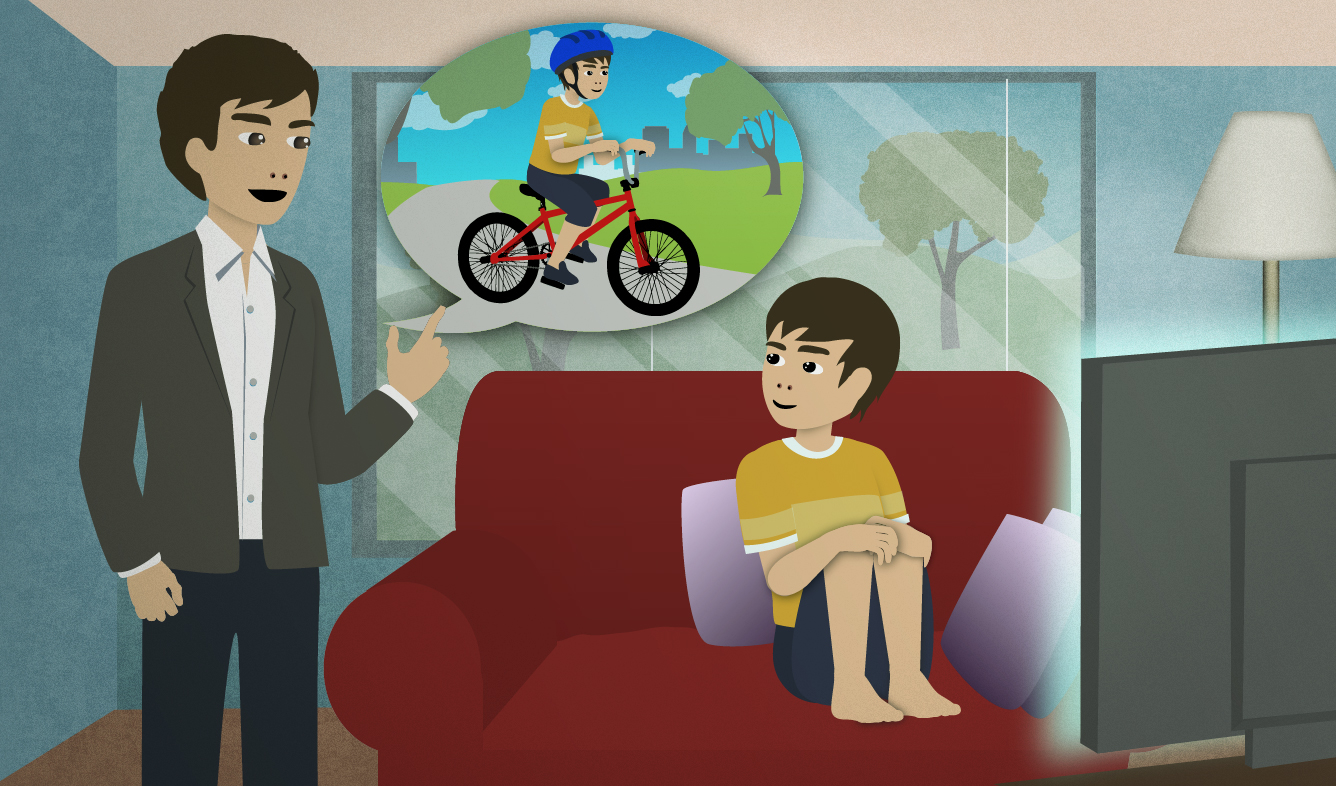“Why don't you go outside and play for a little while, OK?”
Your son has been inside all day. The weather outside is nice, so you think he should go outside. You suggest it to him.
Why don't you go outside and play for a little while, OK?
Want Video and Sound? Follow us on YouTube

for a little while
The phrase "for a little while" means "for a short time". "For a little while" is more common and natural than "for a short time" in conversation.
Why don't you (do something)
This is a friendly way to suggest what someone should do. It means "you should ___" For example, if you and a friend are waiting at a concert to meet someone but can't find him, you can suggest:
Why don't you wait here and I'll walk around and look for him?
It might be confusing, because "why don't you" may sound like you're criticizing the listener. But this isn't how it sounds to English speakers. This phrase sounds friendly, light, and casual.
(do something), OK?
A very gentle and kind-sounding way to tell a young child what to do is to finish your instructions with "OK":
Cut it carefully, OK?
Put your toys back in the box, OK?
With an older child or adult, you should be careful because it might seem like you think of them as a child if you give them instructions in this way.
go outside and play
"Go outside and play" is something that parents tell their children. It means that the children should find games or activities to do outside in the yard or in their neighborhood.
"Go outside and play" was more common in the past. In recent years in the United States, parents are more concerned about their children being hurt or getting into trouble, so they don't tell their kids to "go outside and play" as much.
